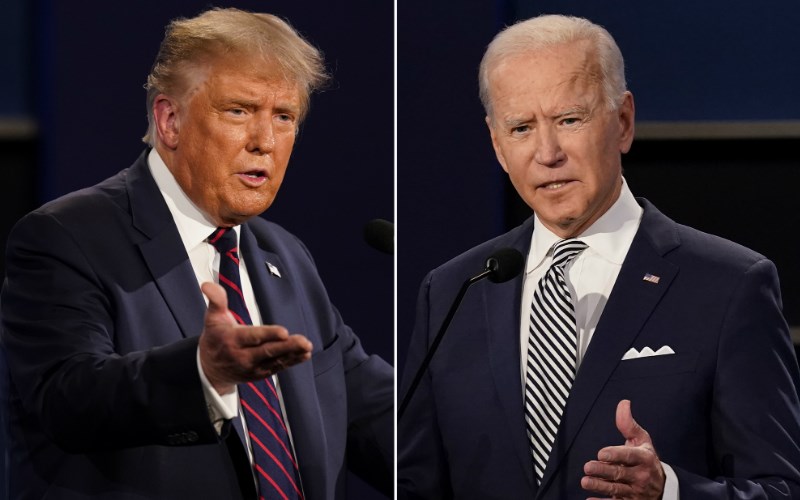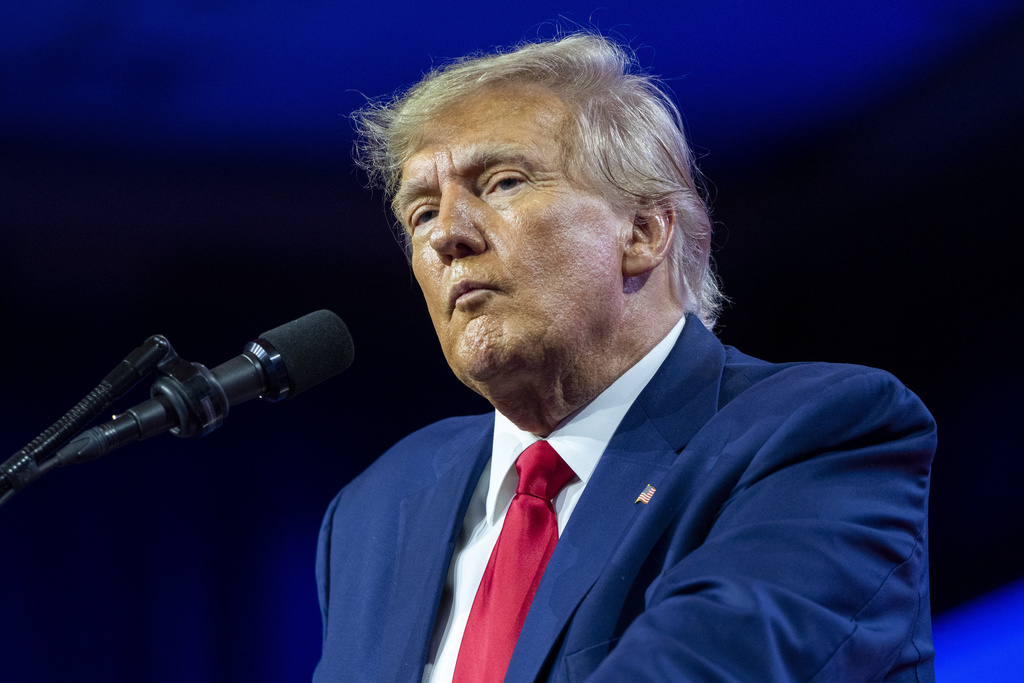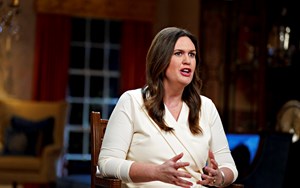Since early in their campaign, President Joe Biden and Vice President Kamala Harris have presented a dual message that both bypasses issues and attacks former President Donald Trump, declaring themselves the United States' only defenders of democracy.
"At this moment in America, freedom is under profound threat," Harris said at a recent campaign stop in South Carolina. "Today we are witnessing a full-on attack on hard-fought, hard-won freedoms."
But with less than a year to go before casting ballots in the presidential election, David Closson, director of the Family Research Council's Center for Biblical Worldview, advises Christian voters to carefully consider all angles of life through a biblical lens and to be careful about viewing the sitting president as the compassionate candidate.
Closson told Washington Watch Monday that when Jesus says, "Love your neighbor," He also lays out what that means.

"In the parable of the Good Samaritan, [Jesus] defines what He means by neighbor, and it means all people," the faith leader told show host Tony Perkins. "But there is a principle in scripture that you start with what's closest. You start with your family, you start with your church, you start with your local community. It's concentric circles that then goes to the nation states."
"The issue of immigration, of open borders – that's a huge issue in which this term of neighbor love is actually misapplied," he added. "We have to do what I call political triage: We have to look at the issues; we have to look at the candidates; we have to look at the party platforms. All of this really matters."
Two principles to remember
Noting the American Family Association's iVoter guide, a resource to help Christians as they follow through with the biblical mandate for them to vote, Closson said two principles – stewardship and neighborly love – could also help them through the vetting process.
While believers are right to associate stewardship with that of time, tithes, and other resources, he submits that Christians who live in a constitutional republic should also think about it in terms of voting.
"When we go into that voting booth or into that caucus, what are we doing? We're delegating our sword to someone else to wield it on our behalf," he said.
Closson referenced The Federalist Papers, written by Founding Fathers James Madison, Alexander Hamilton, and John Jay between 1787 and 1788 to build trust and support for the newly constructed Constitution by emphasizing the authority of the citizen.
As for the second principle of "love of neighbor," Closson remembers that in Mark chapter 12, just a couple of days before Jesus was betrayed and crucified, He said the two most important commandments are to "love the Lord with all your heart, soul, and mind" and to "love your neighbor as yourself."
"Can you and I, as those who live in a constitutional republic, say that we truly love our neighbor in a wholistic sense if we don't care about government?" he asked. "Can I say I love my neighbor in a comprehensive, wholistic sense if I'm not engaging this process which affects my neighbor?"
Evangelicals' just pause
While he understands that Christians cannot biblically accept Biden and the policies of the Left, Closson says they should also be careful about wholistically embracing Trump or any other candidate.
In his Monday commentary for The Washington Stand, the faith leader took issue with the Trump campaign's new video entitled "God Made Trump," a spin-off of late radio host Paul Harvey's "God Made a Farmer."
A group that calls itself "Trump's Online War Machine" used AI – and Harvey's voice – to reword the original recording of "God looked down on his planned paradise and said, 'I need a caretaker.' So, God made a farmer" to say, "And on June 14th, 1946, God looked down on his planned paradise and said, 'I need a caretaker.' So, God gave us Trump."
Some Iowa evangelicals balked at the video in advance of Trump's big caucus win there Monday, but apologist Dr. Alex McFarland notes that the Bible often talks about God raising up leaders.
"In terms of God raising up Trump, I can understand how people think that," he responds. "I think God has raised up many leaders, and at a critical juncture in our nation's history."
But the video takes language from the Bible and applies it to cast Trump in an almost messianic light:

"God said, 'I need somebody who will be strong and courageous, who will not be afraid or terrified of the wolves when they attack, a man who cares for the flock, a shepherd to mankind who won't ever leave nor forsake them."
That is where McFarland draws the line.
"Anytime someone appropriates to a human being attributes and reverence that belongs to God, that's problematic," he recently told American Family News.
"It's got this messianic tone to it, and that's not how we view Trump," Pastor Mike DeMastus of the Fort Des Moines Church of Christ told CBN.
"The video is inappropriate because it purposely co-opts biblical language for unbiblical means," Closson wrote in his commentary.
While he is personally "so grateful" for Trump's accomplishments on the life issue, on religious liberty, and on family, he says it was a "miscue" for the Trump campaign to circulate that video.
"They quote a lot of scripture that in context applies it to the Lord, but then they apply it to the former president. Where we see that happening, we do, as thoughtful Christians who take our cues from the Bible, not a political party, we do need to call that out," Closson asserts.







